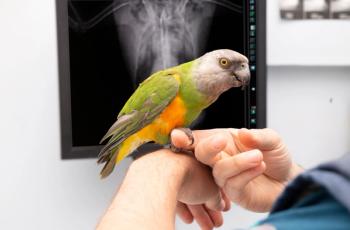
Using mandibular thickness measurements to predict dental disorders in alpacas
Research reveals connection of mandibular thickness with specific risk factors in alpacas, including age, gender, and dental disorders and further implications
Although dental disease is a troublesome health concern in alpacas,1 dental hygiene is not usually a priority, and typically dental disease is not treated until it has progressed to the severe stage. Common dental diseases in alpacas include periodontal disease, apical infection (also referred to as tooth root abscesses), and mandibular swelling. Currently, scientific knowledge and treatment options regarding alpaca dentistry are limited.
A good prognosis depends on early diagnosis and treatment.1 Owners do not generally schedule routine oral examinations for alpacas, but dimensions of the mandibular arcade may be an easily accessible tool for veterinarians and owners. These dimensions may help predict the presence of dental disorders. Evaluation of mandibular swelling is subjective, and cut-off values to standardize severity are needed.
Frontiers in Veterinary Science has published a study2 that set out to identify the association of mandibular thickness with specific risk factors, including age, gender, and dental disorders. The study also attempted to determine suitable cut off values for mandibular thickness and to construct a diagnostic test that might identify alpacas at risk of developing dental diseases.
This cross-sectional study enrolled 216 alpacas from 24 dozen alpaca farms in Belgium and the Netherlands. This sample size allowed for a detection of a 0.8 mm difference in mean mandibular thickness between the 2 groups: diseased and non-diseased. The mandibular thickness was defined as the thickness of the mandibular ramus measured at 5 specific locations using a Vernier caliper.
The mean age of the alpacas included in the study was 5.6 years and 105 alpacas were females, 49 were intact males, and 62 were castrated males. The study researchers obtained 1,080 mandibular thickness measurements.
This is the first study looking at mandibular thickness in relation to age, gender, and dental disorders, and it found2:
- Mandibular thickness was significantly smaller in younger animals
- Mandibular thickness was significantly larger in the presence of interproximal gum recession, periodontal disease, and severe dental disease, at approximately 19 mm
Despite the possible advantages that mandibular thickness measurements can provide in detecting dental disease early, their value should not be overestimated, and routine dental examinations are still necessary. In contrast to equine medicine, routine dental care is not yet part of standardized veterinary care for alpacas, but routine examinations are the best option for early detection of dental disease and favorable long-term prognosis.1
Yum-Chan is a 2022 PharmD candidate at the University of Connecticut School of Pharmacy
References
- Proost K, Pardon B, Pollaris E, Flahou T, Vlaminck L. Dental disease in alpacas. Part 1: prevalence of dental disorders and their mutual relationships. J Vet Intern Med. 2020; 34:1028–38. doi:10.1111/jvim.15741
- Proost K, Pardon B, Vlaminck L. Mandibular thickness measurements as predictive tool for specific dental disorders in alpacas (Vicugna Pacos). Front Vet Sci. 2022; 9:817050. doi:10.3389/fvets.2022.817050
Newsletter
From exam room tips to practice management insights, get trusted veterinary news delivered straight to your inbox—subscribe to dvm360.




